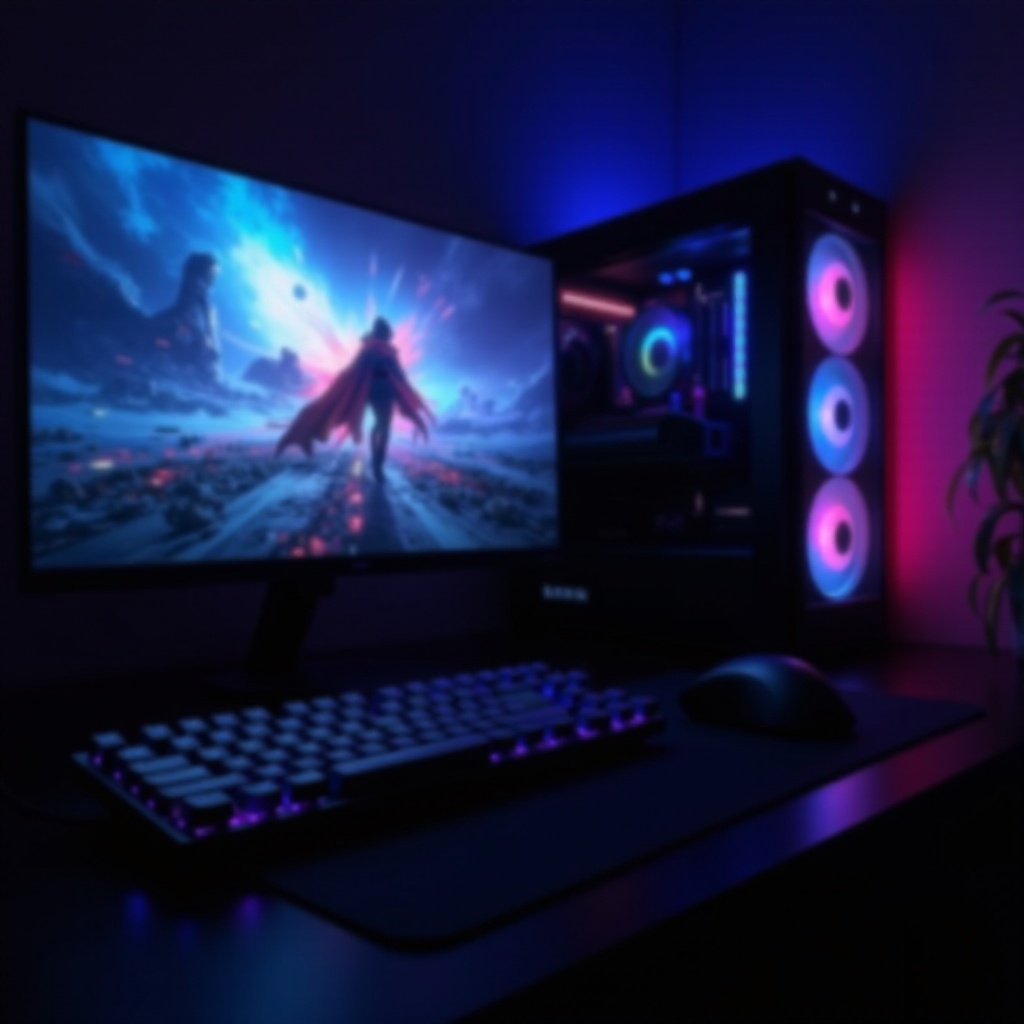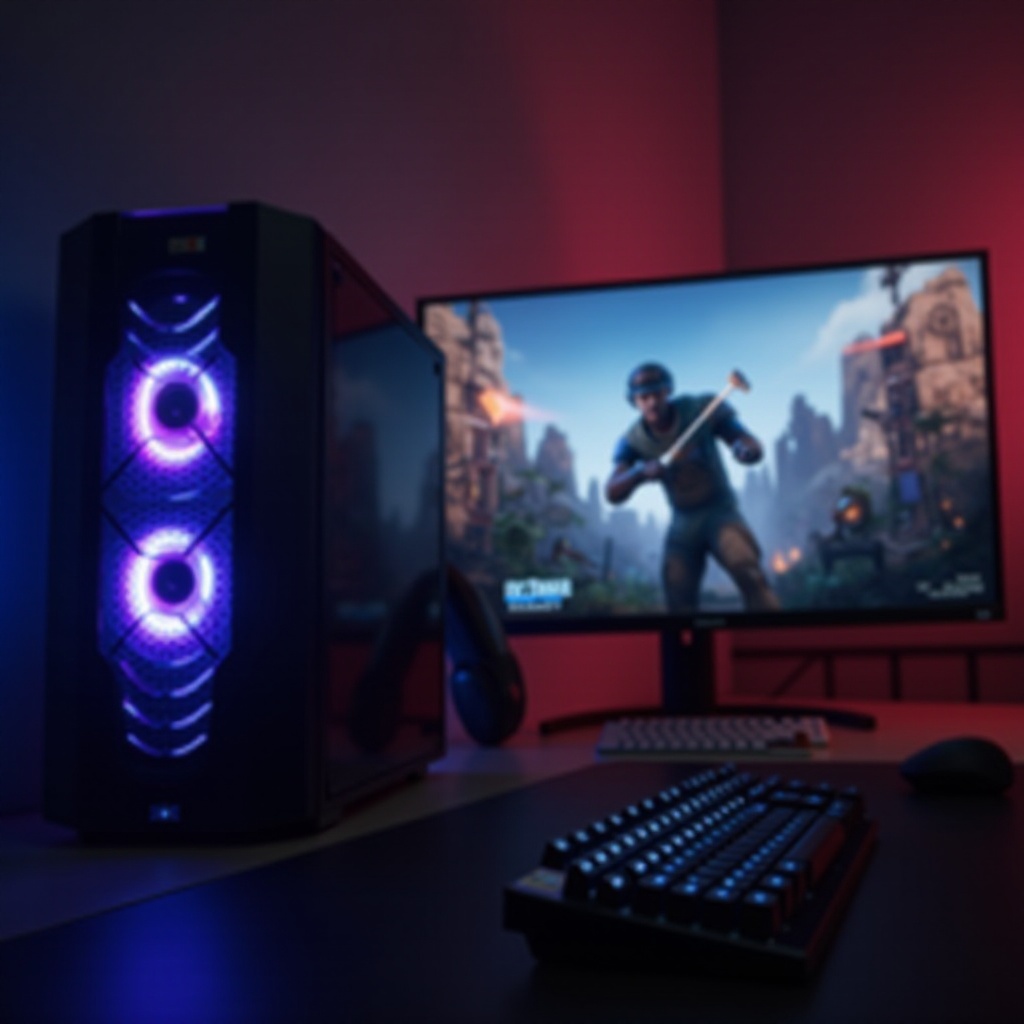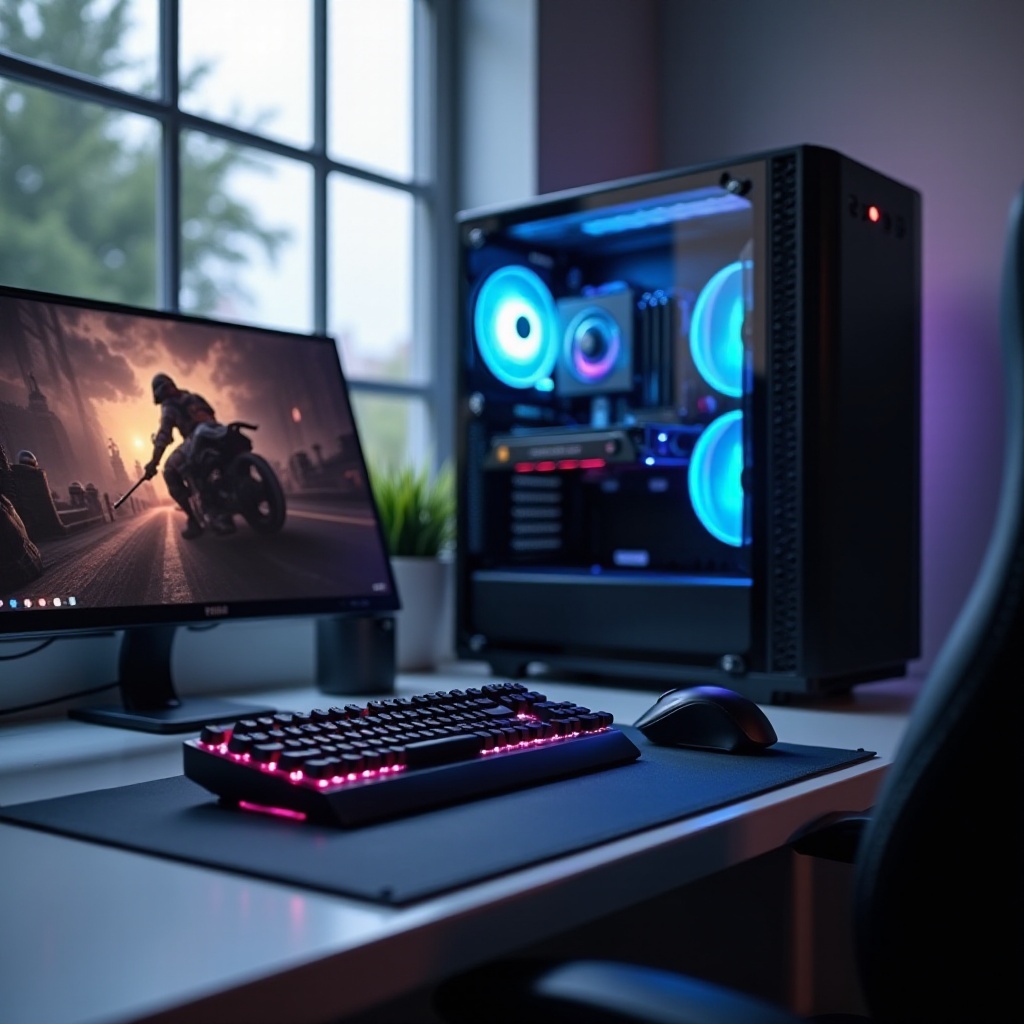Introduction
Deciding to dive into the world of PC gaming is exciting but also overwhelming, especially when it comes to selecting your first gaming computer. The variety of components and options available can make the process daunting. In this guide, we will help you understand what makes a good starter gaming computer, the key components involved, and how to balance performance with cost. We’ll also provide recommended builds for different budgets and tips on maintaining your system. Let’s begin your gaming adventure on the right foot.

Understanding Key Components
Selecting the right components is crucial to building a good starter gaming computer. Each part plays a critical role in your system’s performance.
Central Processing Unit (CPU)
The CPU, often called the brain of the computer, handles all the instructions from software and hardware. For a starter gaming computer, an Intel Core i5 or AMD Ryzen 5 offers a good balance of price and performance. These processors can handle most modern games at decent settings.
Graphics Processing Unit (GPU)
The GPU is essential for rendering images, videos, and animations in your games. A good starter option would be an NVIDIA GTX 1650 or AMD Radeon RX 5500 XT. These GPUs will provide a good gaming experience without breaking the bank, handling most games at medium to high settings.
Memory (RAM)
RAM is important for ensuring your gaming PC can handle multiple tasks at once. For a starter build, 8GB of RAM is the minimum, but 16GB is recommended for smoother performance and future-proofing.
Storage: SSD vs. HDD
When it comes to storage, Solid State Drives (SSDs) are faster and more reliable than traditional Hard Disk Drives (HDDs). A combination of a 240GB SSD for your operating system and games, along with a 1TB HDD for additional storage, provides the best balance of speed and capacity.
Power Supply Unit (PSU)
A reliable PSU is vital for the stability and longevity of your gaming computer. Aim for a reputable brand with at least 500 watts of power. This will ensure your PC gets enough power and allows for future upgrades.
Motherboard
The motherboard connects all your components. Ensure it is compatible with your chosen CPU and GPU, and has enough slots for future upgrades. A good starter motherboard would be something like the MSI B450 or ASUS Prime B460.
Pre-built vs Custom-Built Starter Gaming Computers
Now that you understand the key components, let’s discuss whether you should buy a pre-built gaming PC or build one yourself.
Pros and Cons of Pre-built Systems
Pre-built gaming PCs are convenient as they come assembled and typically include a warranty. However, they can be more expensive and may include lower quality components than a custom build.
Pros and Cons of Custom Builds
Custom builds allow for greater control over component quality and can be more cost-effective. They do require more time and technical knowledge, but there are plenty of guides available to help beginners through the process.
Budget Considerations for Your Starter Gaming PC
Setting a realistic budget is crucial for building a good starter gaming computer without overspending.
Setting a Realistic Budget
Determine how much you are willing to spend on your gaming PC. A good starter budget ranges from $600 to $1,200, depending on the games you want to play and the performance you expect.
Balancing Cost and Performance
Focus on getting the best performance for your budget. Invest more in your GPU and CPU, as these components have the most significant impact on gaming performance. Don’t skimp on the PSU and make sure you have sufficient cooling.
Additional Costs to Consider
Remember to factor in additional costs for peripherals like a monitor, keyboard, and mouse, as well as essential software such as an operating system and antivirus.

Recommended Starter Gaming PC Builds
Here are some sample builds for different budgets to give you an idea of what you can get for your money.
Entry-Level Build
- CPU: AMD Ryzen 3 3100
- GPU: NVIDIA GTX 1650
- RAM: 8GB DDR4
- Storage: 240GB SSD, 1TB HDD
- PSU: 500W
- Total Cost: Approximately $600
Mid-Range Build
- CPU: Intel Core i5-10400F
- GPU: AMD Radeon RX 5600 XT
- RAM: 16GB DDR4
- Storage: 500GB SSD, 1TB HDD
- PSU: 600W
- Total Cost: Approximately $900
High-End Build
- CPU: AMD Ryzen 5 3600
- GPU: NVIDIA RTX 3060
- RAM: 16GB DDR4
- Storage: 1TB SSD
- PSU: 650W
- Total Cost: Approximately $1200

Tips for Maintaining Your Gaming Computer
To keep your gaming computer in top shape, follow these maintenance tips.
Regular Cleaning and Maintenance
Regularly clean your computer’s interior to prevent dust buildup, which can cause overheating. Ensure your fans and cooling systems are dust-free.
Software Updates and Troubleshooting
Keep your operating system, drivers, and game software up-to-date. This ensures compatibility and benefits from performance patches.
Performance Optimization Tips
Close unnecessary background applications while gaming. Use system optimization tools to keep your PC running smoothly and monitor your PC’s performance to identify any potential issues early on.
Conclusion
Choosing and maintaining a good starter gaming computer requires an understanding of key components and budget considerations. Whether you opt for a pre-built system or build one yourself, focusing on the right components within your budget will ensure a satisfying gaming experience. Start with the recommended builds provided, and don’t forget to maintain your system for long-term performance. Happy gaming!
Frequently Asked Questions
What games can I run on a starter gaming PC?
You can run most modern games at medium to high settings on a starter gaming PC, including popular titles like Fortnite, Apex Legends, and Minecraft.
How long will a starter gaming PC last?
A starter gaming PC can last several years with proper maintenance and occasional upgrades to keep up with newer game requirements.
Is it better to wait for sales or buy now?
Waiting for sales can be beneficial, especially around Black Friday or holiday seasons, as you can find good deals on components or pre-built systems.
